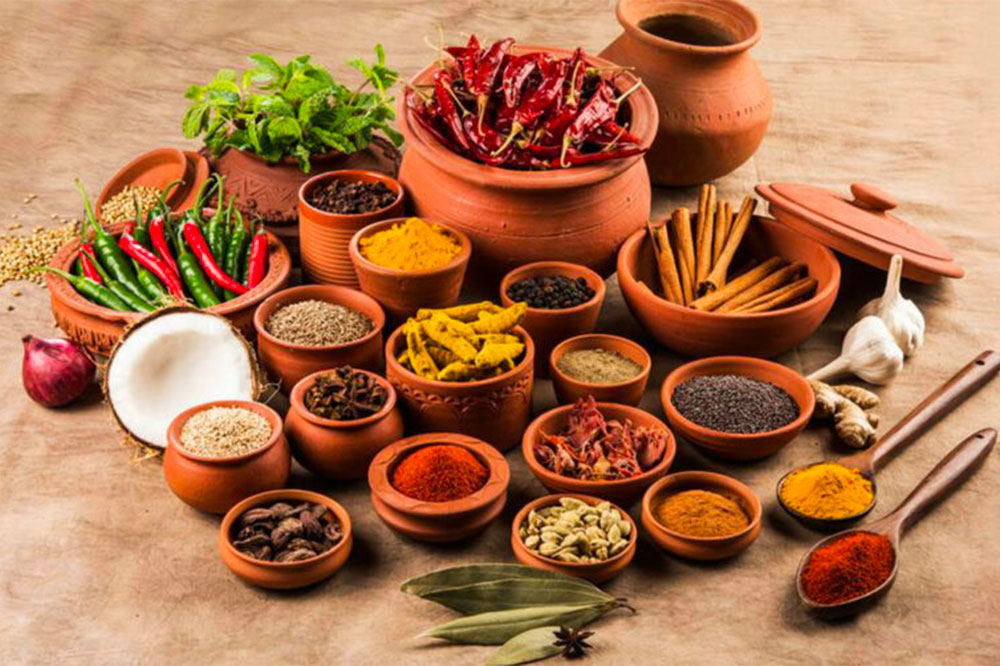6 Well-known Herbs and Spices for Cancer Prevention

Also called the emperor of maladies, cancer affects nearly 1 million people in the country. It is also the second leading cause of death globally, heart disease being the leading cause. Most of the time, cancer affects those people whose family has a history of cancer. Genes carrying cancer-triggering cells are passed down from one generation to the next.
In other cases, prolonged exposure to radiation or toxic substances can chemically induce cancer. This exposure can be a result of occupational hazards, lifestyle choices such as smoking, or due to radiation therapy. In all of these cases, cancer prevention is very difficult unless all the risk factors are eliminated. But, more often than not, this is practically quite difficult. However, the field of alternative medicine recommends the use of certain herbs and spices for cancer prevention. Although there is no reliable scientific proof regarding the effectiveness of these herbs and spices, adding them to one’s diet may lower the risk of certain types of cancer. Here are some well-known herbs and spices that help prevent cancer.
Black pepper
Black pepper contains a chemical known as piperine. This chemical is known to prevent the growth of cancerous cells, especially in the case of breast cancer. Extracts of black pepper are often used to treat gastrointestinal disorders. Black pepper has anti-inflammatory and anti-cancer agents that fight free radical damage. Black pepper is among those herbs and spices for cancer prevention that have been known to enhance the effectiveness of specific anti-cancer medicines. Sprinkling a little bit of freshly ground black pepper can add a dash of heat and flavor to food. One can add it directly to tea, soups, salads, and pasta, or as a seasoning in a wide range of food recipes. Freshly ground black pepper is more beneficial than packaged black pepper powder.
Cayenne pepper
Cayenne pepper contains a chemical called capsaicin. Capsaicin is known to be a chemopreventive agent that inhibits cancerous cells. It has antioxidant properties that are especially useful in combating prostate cancer. Adding cayenne pepper to one’s diet may help in shrinking the cancerous cells and preventing a relapse. Cayenne pepper also helps in losing weight and bringing down the blood pressure. Adding cayenne pepper gives a smoky flavor to food and makes it spicy. One can add it to other spices while making dips and sauces, or sprinkle it on popcorn, pizzas, and salads. A dash of cayenne pepper can spice up smoothies as well.
Cumin
Thymoquinone is the primary component that makes up black cumin. It has chemopreventive and antioxidant properties. It helps in combating the growth of cancerous cells. Cumin is one of the lesser known herbs and spices for cancer prevention. Black cumin seed oil can be added to one’s diet to lower the risk of leukemia, prostate cancer, and breast cancer. It also helps to curb tissue damage due to chemotherapy or radiation therapy. Black cumin oil can be used for cooking soups, curries, stews, dressings, and for grilling various meats especially pork tenderloins. One can easily make black cumin seed oil at home. Homemade cumin oil is recommended over packaged oil to get the best health benefits of cumin.
Holy basil
Some herbs and spices for cancer prevention such as holy basil, lower the risk of chemically-induced cancer such as lung cancer, skin cancer, and colorectal cancer. Holy basil inhibits the growth of cancerous cells that result from the presence of toxic chemicals in the body. This herb has antiangiogenic and antioxidant properties that combat damage caused by free radicals and help in cancer prevention. One can use holy basil like a herb or in an extracted form such as in juices, supplements, and so on. It is recommended to consult a physician before consuming holy basil as an extract or in its packaged form. Adding fresh basil leaves in salads, dips, dressings, and in other food recipes will be more useful in cancer prevention than having it in its extracted form.
Garlic
Garlic is one of the most popular herbs and spices for cancer prevention. It has anticarcinogenic and antioxidant properties that can significantly lower the risk of cancer. Garlic has organosulfur compounds that boost the immune system and helps the body combat cancerous cells. Regular consumption of garlic can reduce the risk of lung, breast, uterine, and colon cancer. With its sharp taste and smell, garlic can add heat and a spicy flavor to food. It is a very versatile spice that can be used to make garlic butter, garlic bread, and dips. One can add it to pasta, vegetable casseroles, stews, chicken preparations, stir fry vegetables, or one can also eat plain roasted garlic if they like its taste.
Rosemary
Similar to holy basil, rosemary also helps in preventing chemically induced cancer. Rosemary has active compounds such as rosmarinic and carnosic that lower the risk of breast cancer, prostate cancer, and lung cancer. Adding rosemary to one’s diet can also help in chemotherapy treatments. Rosemary extracts have been known to inhibit the growth of cancerous cells. With its aromatic flavor, one can use rosemary in numerous food preparations. It can be used to make sauces, focaccia, or dips. One can add it to pizza toppings, roasted lamb, or pork. Rosemary sprigs can also be used to make flavored olive oil that works as a great salad dressing.



